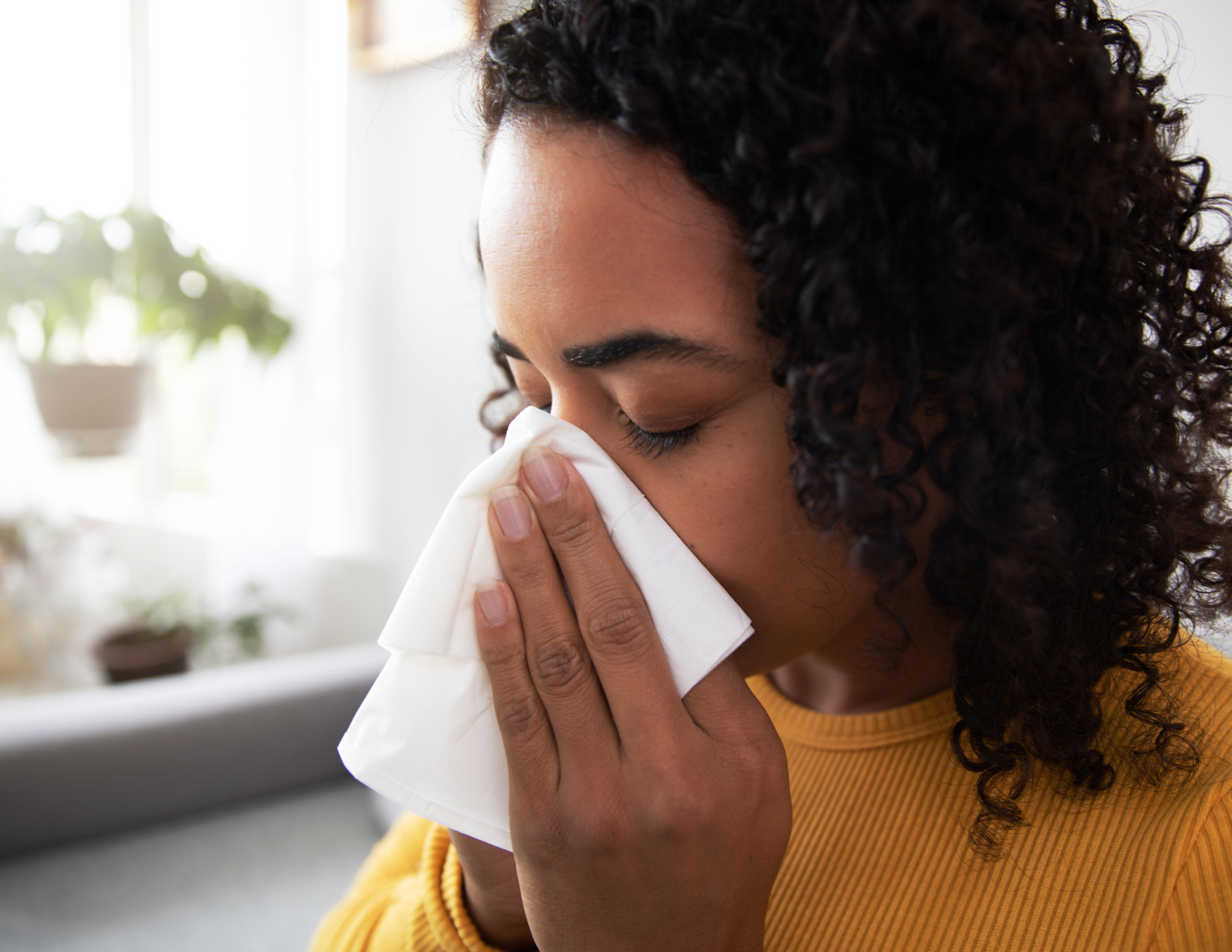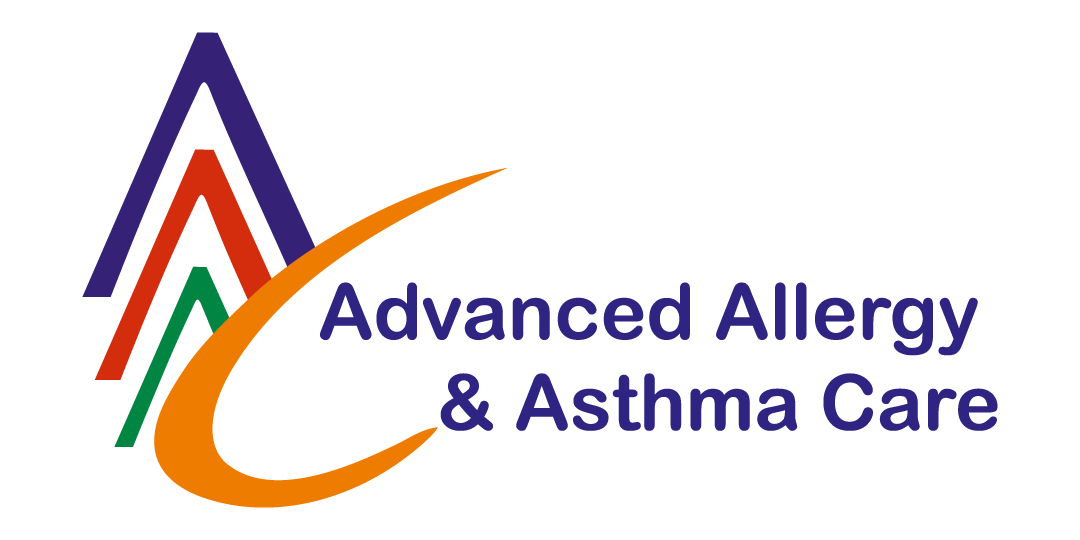ALLERGIC RHINITIS
Home > Allergic Rhinitis

We all know someone like this…AAAACCCHOOO!!! He sneezes 5 or more times in a row, wipes his nose and rubs it upward, clears his throat every couple minutes while on the phone with you, blows his nose loudly or keeps a tissue close by to catch a “drip”, twitches his nose while sitting in traffic, pauses when he steps outside to wipe or rub his eyes. Just looking at him makes you itch!
He may have dark circles under his eyes or a crease on his nose from rubbing it so much. But he insists he is not sick. He may be a CEO in an expensive suit or he may be your child’s 8 year old playmate. He says he feels perfectly fine. Perhaps this scenario hits even closer to home – you or your spouse?
In any case, this is a visual and audio description of allergic disease. In fact, it is one of the most common chronic diseases in the US. Chances are that you or someone you know is affected. Approximately 40 million Americans or 20% of all people are affected.
It is commonly referred to as hayfever. In medical terms it is called allergic rhinitis and conjunctivitis.
Rhinitis is defined as inflammation of the nasal membranes and is characterized by a combination of symptoms: sneezing, nasal congestion, nasal itching, and runny nose. The eyes, ears, sinuses, and throat can also be involved.
Most people do not seek medical help for allergic rhinitis and conjunctivitis. While it is not life threatening, it contributes to learning difficulties, sleep disorders, and fatigue. Complications include ear infections, middle ear fluid or dysfunction, and sinusitis. Allergic rhinitis can be associated with other conditions such as asthma, eczema, or nasal polyps. Studies consistently show it significantly impairs overall quality of life.
Two-thirds of all patients have symptoms of allergic rhinitis before the age of 30, but onset can occur at any age. There is strong genetic predisposition to allergic rhinitis. Other conditions like pregnancy can initiate symptoms or make them worse.
Common causes are exposure to pollens, pets, dust, and mold.
Testing can be done for patients at any age. It is quick (20 minutes), inexpensive, and readily available at allergy offices by certified specialists. Allergy skin tests, also called scratch, prick, or puncture testing are the most accurate way to diagnose the cause of allergic symptoms. Blood tests are also available but are more costly and normal values are less well established for some allergens.
Pictures of the sinuses and upper airway such as sinus x-ray, CT scan, and neck x-ray may be helpful in diagnosis and defining other anatomic problems.
Avoiding allergens is the most optimal treatment. This is not as easy as it sounds. Dust mite covers, HEPA filters, removing animals and carpeting, reducing humidity, washing sheets in 130 degree water…these are among the long list of measures that may or may not help. Often it is impossible or costly to employ these recommendations. Medications are the next best step. They can be taken orally, sprayed in the nose, or applied on the eye. Antihistamines treat itchiness, nasal steroid sprays and sometimes saline washes treat inflammation and congestion, other nasal sprays act to reduce the runny nose only. The downside to medications is that even when they do work they only treat the symptoms, may cause side effects, and are costly.
So what hope is there for people who suffer from allergic rhinitis and conjunctivitis besides medications? A considerable body of clinical research has established the effectiveness of high-dose allergy shots in reducing symptoms and medication requirements. It is only available treatment that can modify the natural course of the allergic disease, by reducing your body’s reaction to an allergen. Success rates have been demonstrated to be as high as 80-90% for certain allergens. It is a long-term process; noticeable improvement is often not observed for 6-12 months, and, therapy should be continued for 3-5 years. Immunotherapy, or allergy shots are not without risk because severe systemic allergic reactions can occur rarely. For these reasons, we carefully consider the risks and benefits of immunotherapy in each patient and weigh them against other management options. For these reasons, allergy shots are only prescribed by certified allergy doctors.
Thank you for your interest. Stay tuned for my next few articles covering the following topics:
asthma,
hives,
eczema,
food allergies, and
drug allergies.

